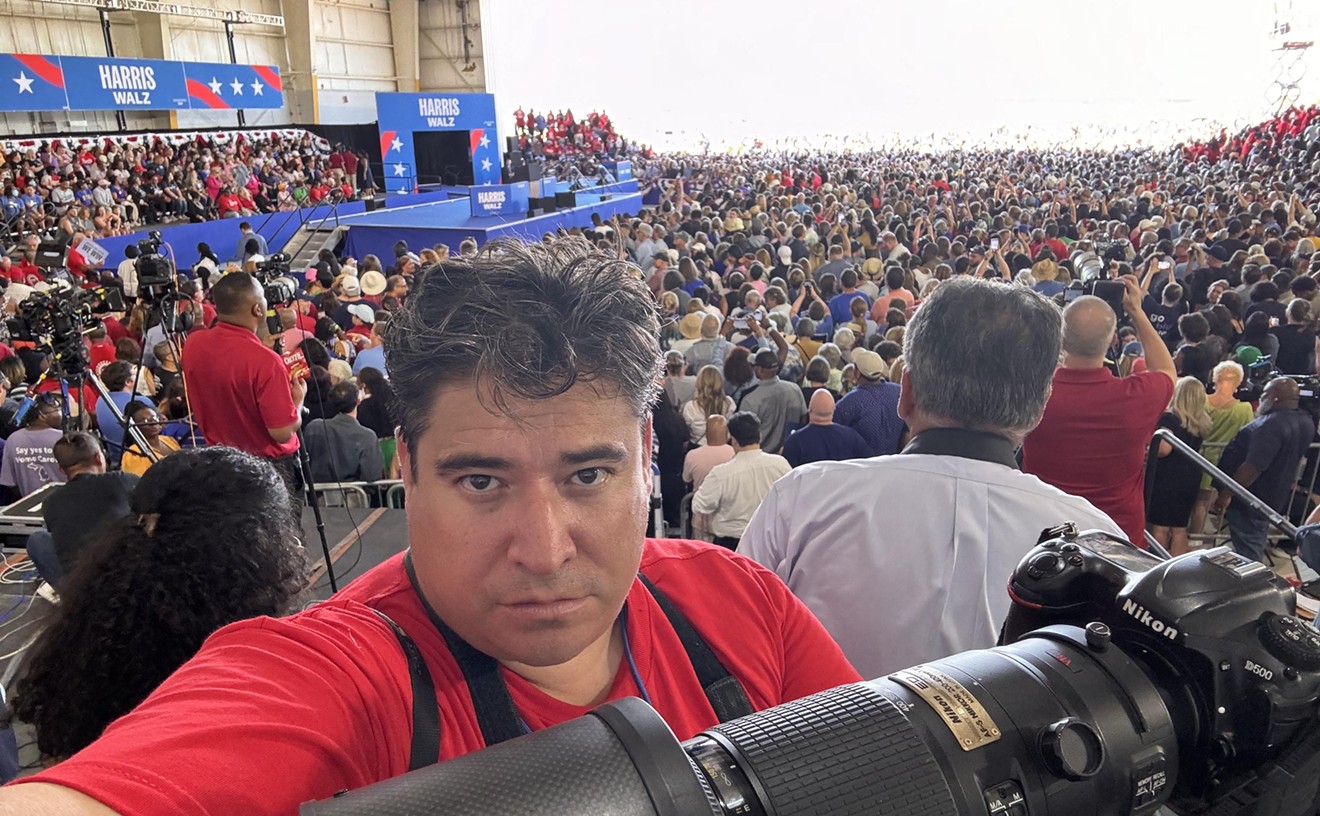A regular on the social circuit, Mizel has been feted at fundraising dinners and was even made an honorary dean by the University of Denver. Almost forgotten is the scandal that shook Mizel's company, MDC Holdings Inc., earlier this decade. By the time the dust settled, several MDC executives had pleaded guilty to charges of funneling illegal political contributions through subcontractors. (No charges were ever leveled against Mizel himself.) MDC, the parent company of Richmond American Homes, had also been heavily involved with the disgraced Silverado Savings & Loan, whose bailout cost taxpayers more than $1 billion.
But today all that is history. In exchange for running MDC, Mizel is now paid $3.2 million a year and also has a $1 million in-house loan to buy stock in the company. The firm is posting record sales of $1.3 billion, with an annual profit of more than $50 million. Mizel has used part of his share of the profits to make generous contributions to local politicians, including Bill Owens. And he's been at the head of the line in asking for favors from Colorado's new governor.
One of his first wishes was granted in January, when Owens nominated Vickie Armstrong to head the Colorado Department of Labor and Employment. A former state representative from Grand Junction, Armstrong became a highly influential lobbyist who led the effort in the early 1990s to change state workers' compensation laws and give employers more control over the medical care of injured employees. As a result of her successful efforts, many workers now complain that they're being treated by doctors who have a financial incentive to minimize their injuries and even deny them necessary treatment.
But that wasn't enough for the coalition that pushed the law through. Even though workers' comp insurance premiums for businesses have fallen dramatically since the system was "reformed" in 1991--and companies like Mizel's have seen profits soar--the state legislature has been the site of a continuing assault on the workers' comp system.
In the most recent session, lawmakers approved large reductions in benefits for the most severely injured workers and also restricted counseling for employees who suffer from stress-related injuries. Senate Democrats were infuriated when Armstrong visited the Senate chambers to push for passage of the bill cutting benefits: At her confirmation hearing just weeks before, she had promised that she wouldn't lobby the legislature. Although Armstrong claimed she was there simply to respond to questions, after her visit, state senator Bryan Sullivant was persuaded to vote for the bill, allowing its passage by just one vote.
Mizel lobbied personally for Armstrong's appointment to the $100,000-per-year labor-department job, which was largely seen as a reward for her efforts as head of the business-backed Workers Compensation Coalition.
"Larry Mizel made his opinions known about Vickie Armstrong to Governor Owens," says Dick Wadhams, spokesman for the governor. "That's part of the process, to get feedback from a lot of different people."
Mizel, who was unavailable for comment, has played a prominent role in groups working to cut benefits for those hurt on the job, primary among them the Workers Compensation Coalition. The WCC raised more than $34,000 in political contributions last year from a host of construction firms, including New Generation Homes, Groninger Construction, R.E. Monks Construction Company, and General Iron and Steel. The coalition contributed to Owens's campaign, as well as those of dozens of state legislators. Other groups that represent the building industry and help fund political campaigns include Project BILD, the Construction PAC, and the National Federation of Independent Businesses.
Another organization that plays a shadowy but influential role in Colorado politics is Colorado Concern. Although the membership list for that organization is confidential, Westword has obtained a copy. The roster reads like a who's who of Colorado's elite, with dozens of big shots including Jeff Dorsey of Columbia-Health One; Walt Imhoff of the Hanifen Imhoff brokerage; Ascent Entertainment's Charlie Lyons; Richard Robinson of Robinson Dairy; Denver Post owner Dean Singleton; developer Jordan Perlmutter; and Larry Mizel.
Colorado Concern claims to be devoted to economic development and has lobbied for a grab bag of causes, ranging from a new stadium for the Broncos to light-rail development in metro Denver. The group has also pushed to cut workers' comp benefits.
"Colorado Concern is probably the most organized group that's been effective in getting support from the legislature for their issues," says Denver workers' compensation attorney Marshall Fogel. "They want to diminish workers' power and make even more money than they already make."
For people injured on the job, the new laws can have a dramatic impact, especially if those injuries cause them to lose their career.
"I went from making $25 an hour to being unemployable," says William Smith, a plumbing construction supervisor who was injured last year.
Smith, 57, had worked as a plumber for 37 years before slipping and banging his knee while carrying a bathtub. He's been through several surgeries, and the doctor appointed by his employer's insurance company declared him a candidate for knee replacement. The doctor also said he can't carry more than twenty pounds, crawl or go up a ladder--all necessary activities for a plumber.
"My tools weigh more than twenty pounds," says Smith.
The insurance company recently offered to settle Smith's claim with a one-time payment of $9,800.
Before the legislature first reduced workers' comp benefits in 1991, Smith would have been eligible for up to $45,000 to enable him to train for a new career. Now he's lost his profession, has no experience that would allow him to make a similar salary doing something else and has no access to funds that would give him career training. He may have to take a job that pays as little as $7 an hour; that sudden loss of income could reduce his Social Security benefits when he's eligible to retire, since payments are linked to earnings.
"I thought at a minimum I'd be offered some type of retraining," says Smith. "At 57, it's difficult to restart a career without some training. What the hell do I do now?"
Wadhams insists that the changes in workers' comp law have been sensible. He says Owens supported the new legislation because paying workers' comp premiums has become burdensome to many businesses.
"These are reasonable reforms of workers' compensation," says Wadhams. "The governor believes small businesses in particular were being saddled with unfair burdens. He believes the reforms will leave Colorado with a system that protects workers and businesses."
But Owens's effort to reduce workers' comp benefits has infuriated Colorado's labor unions. The new administration's attitude toward unions was made evident even before Owens took office, when the transition team that advised the governor-elect suggested that he consider dropping the word "labor" from the name of the Department of Labor and Employment.
The appointment of longtime labor nemesis Armstrong coupled with Owens's support of "right to work" laws that would prevent unions from collecting dues from all the employees they represent were also regarded as extremely hostile acts by the state's unions.
Although the right-to-work proposal went down, Bob Greene, president of the Colorado AFL-CIO, says he's lost all faith in both the legislature and Owens when it comes to protecting the rights of injured employees. "If you look at what they passed this year, they've done more damage than any year since 1991," says Greene. "I'm convinced we're wasting our time with the legislature. We know who controls that."
Now that the legislative session is over, labor leaders have been meeting with local workers' comp attorneys to study their options. Greene predicts that Colorado voters will see a labor-backed workers' comp initiative on the ballot in 2000.
"If we're going to do anything for injured workers," he says, "we'll have to go to the voters.











